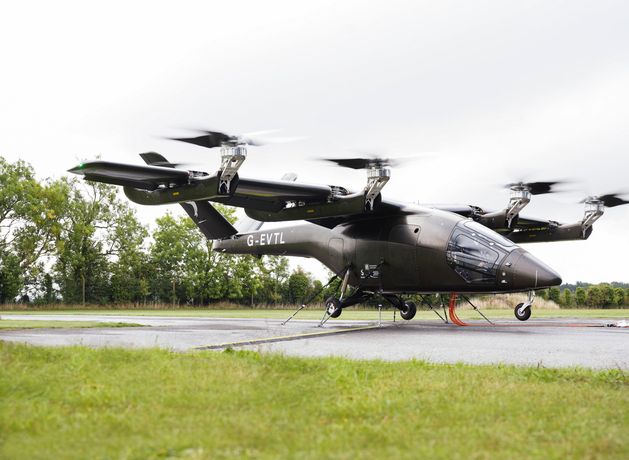Vertical Aerospace was reported to be in crunch talks with creditors, which could have resulted in an agreement where Mr Fitzpatrick (47) – also the founder of energy supplier Ovo Energy – gave up control of the business.
According to The Times, American company Mudrick Capital was due to convert loans it had made to the business into a stake – which would have led to a reduction in Mr Fitzpatrick’s 70% controlling share.
In a call with investors on Tuesday, chief executive Stuart Simpson said there were continuing discussions with investors, though Mudrick was not mentioned by name.
He said the company had $60m on hand at the end of September, but would need around $100m in total for the next 12 months. “This spend will increase as we approach certification and production,” Mr Simpson said.
“We’ve confirmed that we’re in discussions about potential third party investment and are optimistic that these results will be positive in outcome and I look forward to updating you on those discussions as soon as they are complete.
“As is prudent, we continue to explore all alternative options available to us.”
Its carbon-zero VX4 electric flying taxi, manufactured in Bristol, is still in the certification phase but he announced a manufacturing target of 200 aircraft a year from 2030.
And he said suppliers were not concerned about their financial situation. “I’ve seen no worries or concerns about that at all. We’re very transparent with them… we’ve ever been closer to getting a deal.”
“This is the starting gun firing for the next stage of Vertical and our commitment as we move from a prototype company to a certification process, then really building a long-term sustainable profitable business here in the UK,” Mr Simpson said.
He said the company, listed on the New York Nasdaq, will announce changes in its organisational structure on Wednesday.
Stephen Fitzpatrick, founder of OVO Energy and Vertical Aerospace, topped the NI entries on The Sunday Times Rich List 2023 but was third in the 2024 list
Mr Simpson said the company was “trying to transform the way the world moves”.
“This isn’t just about creating a new form of transport. It’s about fundamentally reimagining the future of sustainable mobility through our mission of pioneering electric aviation.”
He said 1,500 aircraft have been pre-ordered by customers “giving us confidence on revenue visibility through the first five years of production”.
Customers ranged from helicopter operators to aircraft lessors, airlines and tourism groups. American Airlines has invested in the company and made an order of up to 250 VX4 in 2021, a deal worth up to $1bn.
Customers are due to see the aircraft fly next week, with the company already having mapped out 1,000 routes they could be used on.
“This is an entirely new transport option for routes where traditional aviation isn’t commercial or accessible. Over 90% of these flights are under 30 miles,” Mr Simpson said.
It would be useable in place of trains, cars, taxis or helicopters. “VX4 offers a more sustainable, efficient, safer and quieter alternative.”
He said the business would break even in 2030, with its profit margin to grow to over 40% in the medium term.
Its medium-term target is to manufacture over 700 units a year. He added: “The reality of this coming to life is far closer than people think. It really is a case of when and not if we succeed.”
He said the business had so far received £37m in government grants to support its research and development (R&D).
The business has applied for certification from the Civil Aviation Authority (CAA).

